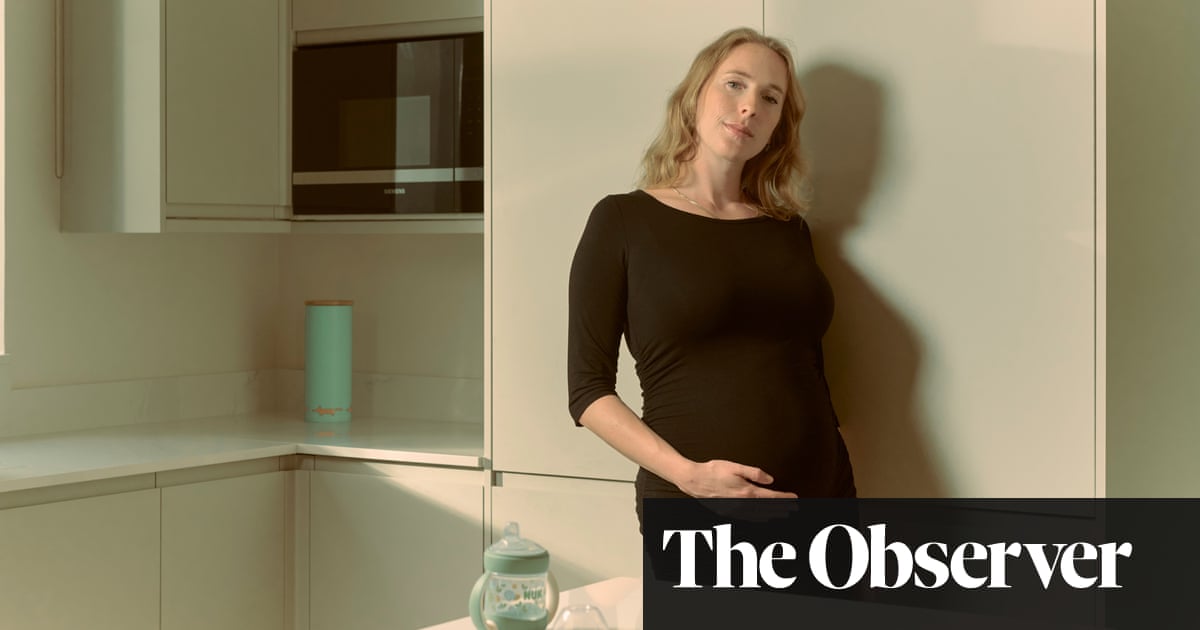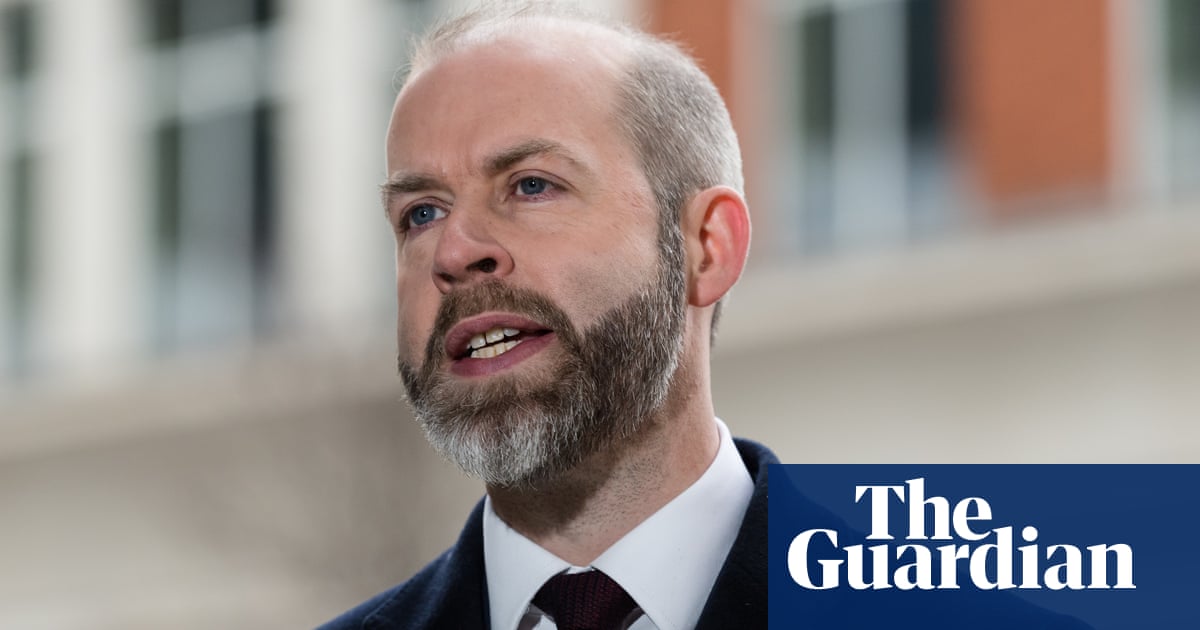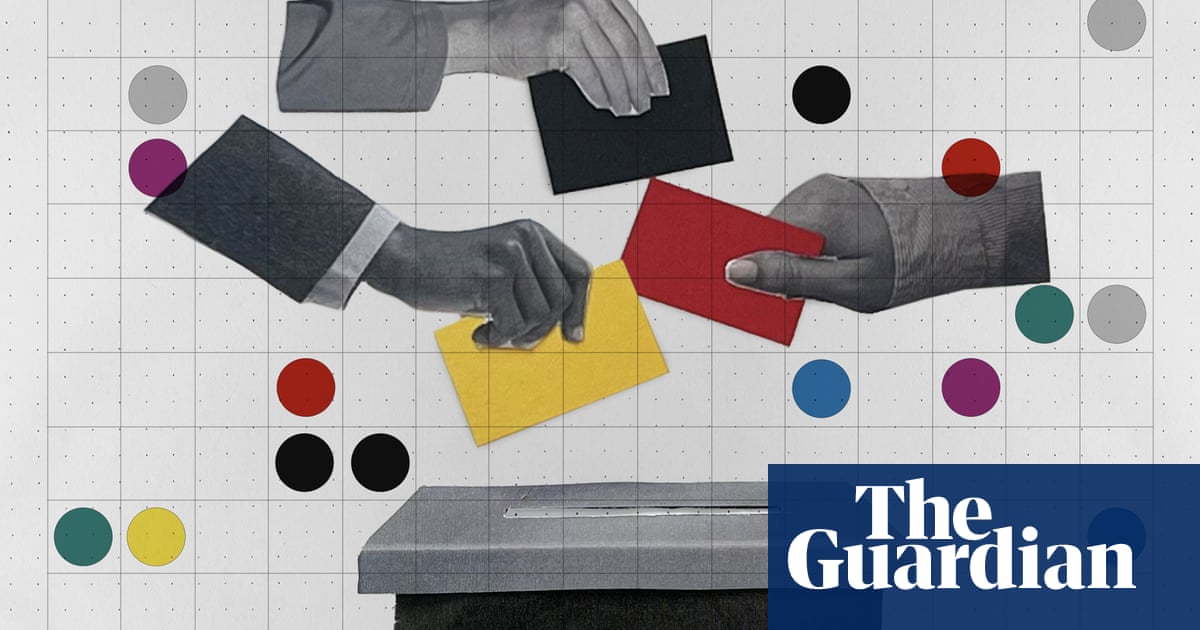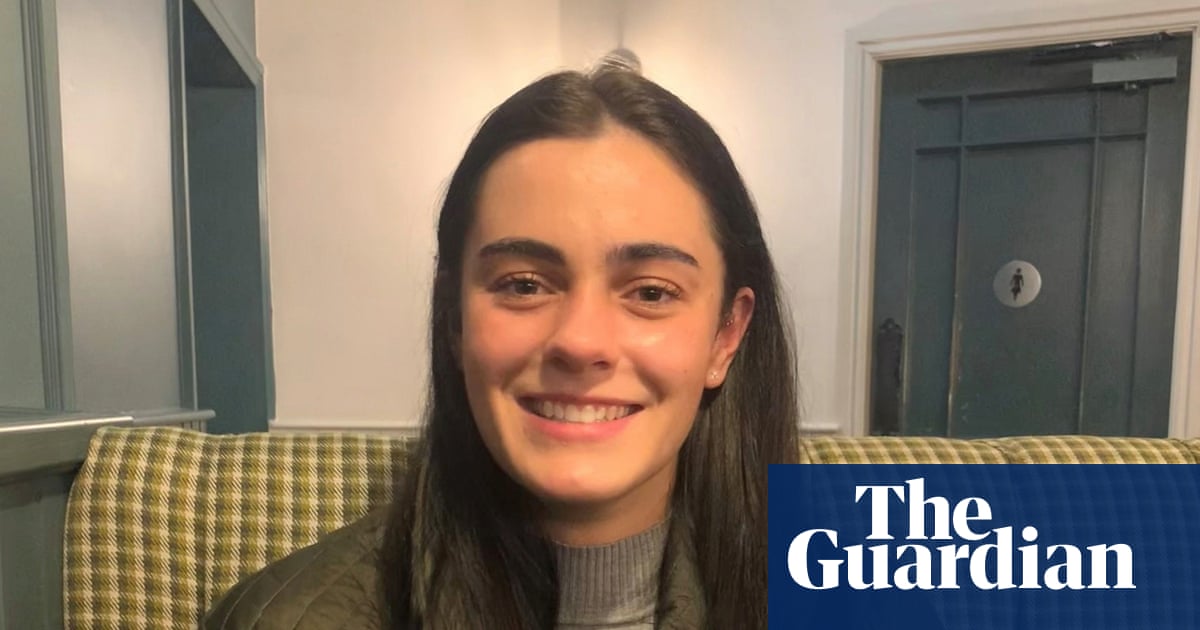A few nights ago, my phone lit up with a TikTok notification: “WE’RE PREGNANT”. The message wasn’t from a friend. It was from an Australian couple, complete strangers. But social media knows me well because I felt something sharp and bright – joy and relief – for people I will never meet.
It’s strange to feel deeply for someone you’ve never spoken to, whose life is about as geographically far from yours as possible. But I was thrilled to see this pregnancy announcement, shared with millions, from someone I only knew through a few carefully curated moments. As someone who is fundamentally nosy – I will never not notice a “baby on board” badge or make up backstories for strangers – social media has always offered an irresistible window into other people’s lives.
Just before lockdown, I was housebound with an ankle so fat it looked like an inflated washing-up glove. (I’d fallen – sober, I should add – down every step of Oxford Circus station.) Immobile, bored and lonely, I’d downloaded TikTok. I was first drawn in by the dance videos, then utterly absorbed by more personal, raw content.
What started as curiosity soon became an emotional investment. In five years of TikTok use I’ve witnessed a rise in creators documenting every intimate detail of their trying-to-conceive (TTC) journeys, the content now spilling over on to other platforms. My experience has moved from voyeurism, to research, to deeply personal connection.
If you haven’t seen it, there’s a whole world of TTC influencers filming the kind of private experiences that once happened in low-lit bathrooms, whispered to partners in bed, or shared with close friends. Intimate moments are now monetisable and watched by massive audiences: pregnancy tests held up to the screen, fertility medication syringes clicked and pressed into stomachs, euphoric “live reaction” videos and heartbreaking silences.
It’s a very modern phenomenon and one that feels especially timely considering the fertility rate in England and Wales has dropped to its lowest since records began in 1938. For some reason, we all accepted that you shouldn’t talk about wanting children outside the closest circles, let alone discuss the emotional toll of trying to have them. Social media is breaking that, creating virtual communities with unprecedented levels of instant support.
Two things happened back in 2020: TikTok pushed me into increasingly niche corners, from TTC to alternative birthing stories, and lockdown meant I had far more time to read all the articles I’d previously bookmarked. That’s how I discovered freebirthing, the term used to describe a pregnancy and birth without any medical interventions. No scans, no drugs, no healthcare professionals. I read the harrowing account of one mother who was certain she should avoid doctors even as she approached 45 weeks, only for her child to pass in utero. Her reflection on the influence of online groups haunted me.
I was 28, vaguely thinking about starting a family someday, and freebirthing seemed so radical and challenging. I couldn’t stop asking myself: why would someone leave the safety net of medicine? What made that mother so certain, so trusting of these online voices? Those questions became the foundation of my debut novel.
Back in 2020, my job involved running social media campaigns for a literacy charity. My research led me to private freebirthing groups, so my Facebook feed swung between virtual nursery rhyme events and graphic freebirth videos – blood, viscera and fragile life pulsing through bathtubs and mattresses. Once my algorithm learned I was interested, it pushed the content even more, across all social platforms.
I was taken by the language used: ancestral births, sacred mothers, the divinity of a fully autonomous and wild pregnancy. My protagonist, Claire, emerged from this research but, unlike me, she had experienced medical trauma leading to deep mistrust of healthcare professionals, making freebirthing her chosen path. Through her story, I tried to approach the subject with curiosity rather than judgment.
Dr Zeynep Gurtin, a medical sociologist at UCL who is setting up the largest international study in freebirthing, explains there are a “huge number of reasons” why someone freebirths. This includes cultural contexts of seeing physiological births at home, past successful intervention-free births, and a response to the NHS’s reported institutional racism and bias. Gurtin says, “Medicalisation of pregnancy and birth necessitates viewing these events as pathologies, and it’s understandable that some people are now saying, ‘That doesn’t serve me, and it doesn’t respect my autonomy’.”
In the years since I started my book, Baby Teeth, freebirthing is thought to have increased, though there are no definitive records. Dr Shree Datta, consultant obstetrician and gynaecologist at the Portland Hospital and NHS Homerton Trust, says, “It’s estimated that a very small proportion of births, likely less than 1%, occur outside a medical or midwifery setting, including freebirths.” She notes, “The NHS does not formally recommend freebirth, but we respect a woman’s right to make decisions about her birth.”
Dr Ian Scudamore, vice-president for education of the Royal College of Obstetricians & Gynaecologists adds, “Giving birth without any professional support may put mother or baby at risk and this is important to be aware of when making this choice.” Dr Kim Thomas, CEO of the Birth Trauma Association, identifies two key factors driving the rise: “Difficult and distressing experiences giving birth in hospital, often as a result of poor medical care” and “the influence of social media and the rapid growth of anti-medical messaging.” She explains, “Some believe that with the right exercises and mindset, a birth can be entirely straightforward, even empowering.”
Imogen, 34, reflects on how the desire to freebirth can play out in practice. She had a “wild” pregnancy (no scans, no blood tests, no midwife visits), joined an online community called Live Wild Birth Free, and prepared to freebirth before requiring support after a four-day labour at 43 weeks. She describes her experience arriving in hospital: “The midwife who took over the next shift was so rude and condescending about our choices. Wild pregnancies and freebirth are completely legal and work for so many.” She says, “If I had my time again, I would do the same; the number of horror stories of friends and family I have since heard just makes me realise how broken the system is.”
I watched women like Imogen carry and deliver their children, either at home or in medical settings, and I continued my writing, being sure always to approach freebirthing with an open mind. And then, something shifted. While editing Baby Teeth, my research bled into my reality. My husband and I started trying for a baby.
The experiences I’d researched and written about – the yearning for a child, the agony of a period’s arrival, the extraordinary expense of pregnancy tests – became my reality. Unlike my protagonist Claire, whose journey was one of infertility, mine was marked by recurrent loss. I found myself in private miscarriage forums, in anonymous comment sections, sobbing while I typed, just as I imagined Claire would have. It was a strange experience: life following a fiction of my own creation.
I felt nothing but gratitude to the creators who shared similar experiences of miscarriage in their videos, who gave voice to the grief that choked me. I felt seen and connected. I would never film myself in tears and upload it for anyone to see, but I understood why they did. It was about the world knowing the lost pregnancy had existed and been loved. At the time, few of my friends were TTC and (thankfully) none had experienced loss. The videos made me feel close to an undercurrent of human experience that is so often not discussed.
Eventually, we got lucky. Our son was born at the end of 2022 and as I write this, another is due soon. Throughout the years, I haven’t been able to tear myself away from freebirthing videos. Just before my scheduled C-section, I followed as one woman kept her post-freebirth placenta attached to her body in a large tupperware, sprinkling herbs to help preserve it.
No matter how different my own choices were when it came to my son’s birth, I was compelled to follow journeys, celebrate victories. I still scroll. I still follow the people whose stories have flickered across my phone screen for half a decade: the increasingly more public freebirthers and the mainstream TTCers.
The TikTok notification I received – WE’RE PREGNANT – wasn’t just for me. It was for four million others, an audience the size of a city. The Australian couple, after years of unsuccessful IVF and one early loss, are expecting later this year. Fertility stories remind us that beneath the screens, we’re all searching for connection. In the noisy, often commodified world of social media, the content creates a space where the often-unspoken – whether it’s the journey to pregnancy, the pain of loss, or the desire for greater autonomy over birth – is given voice. And in those moments you stop for a second, and realise you feel less alone.
Baby Teeth by Celia Silvani (Orion, £20) is out now. Buy a copy from the guardianbookshop.com for £18
Article by:Source: Celia Silvani













